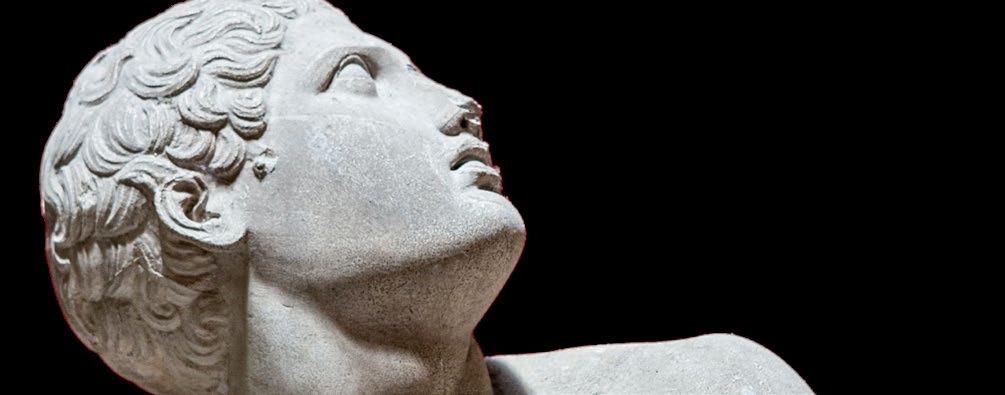

CLASSICS Matters
Here we aim to offer a snapshot of what happens each term in Classics at The Abbey and beyond.
Should you have any questions or wish to discover more about this subject, feel free to email us at loprestiva@theabbey.co.uk
If one does not hope for the unhoped, one will not find it, for there
to it and no path.
(Heraclitus, B18)
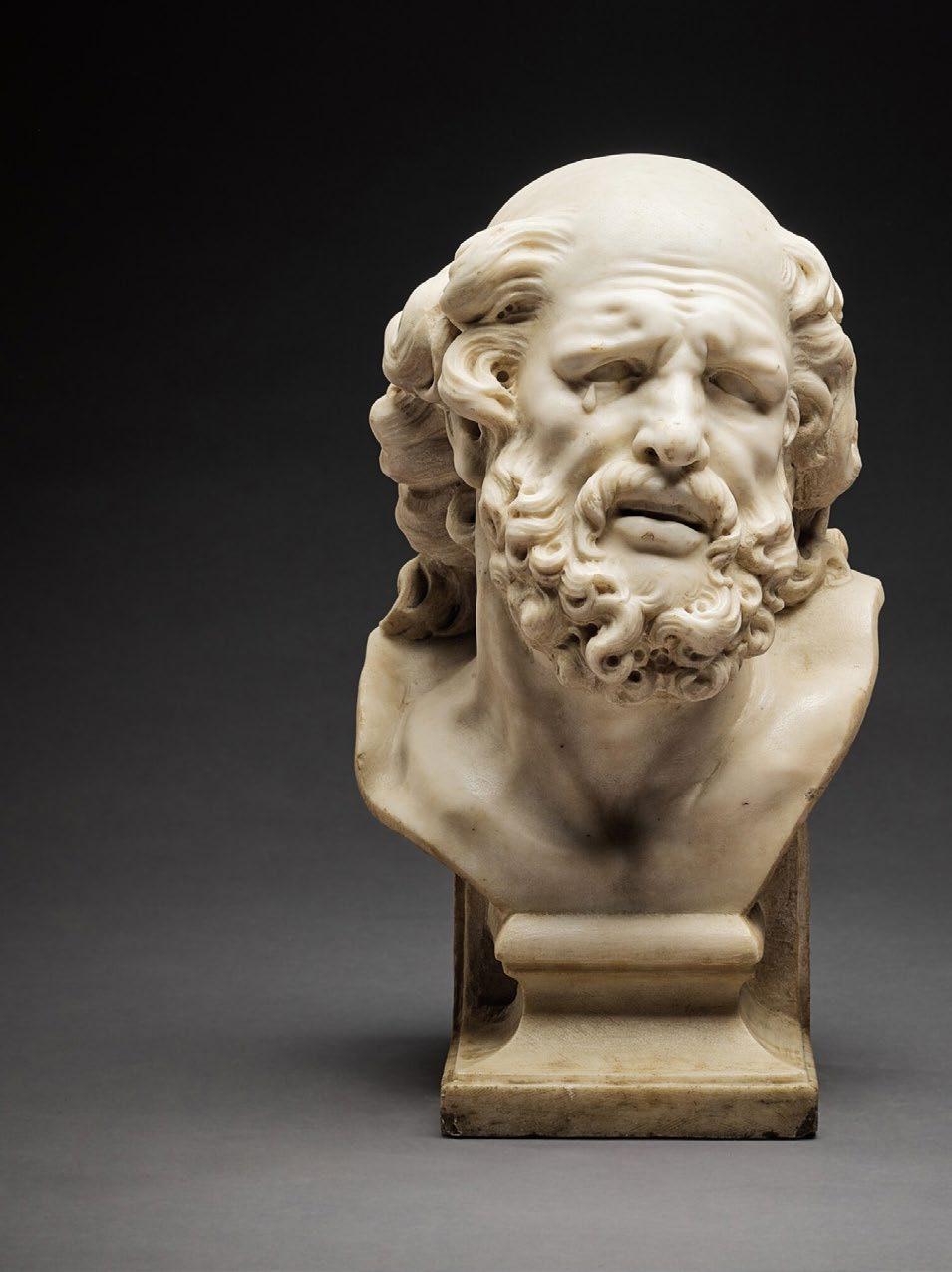

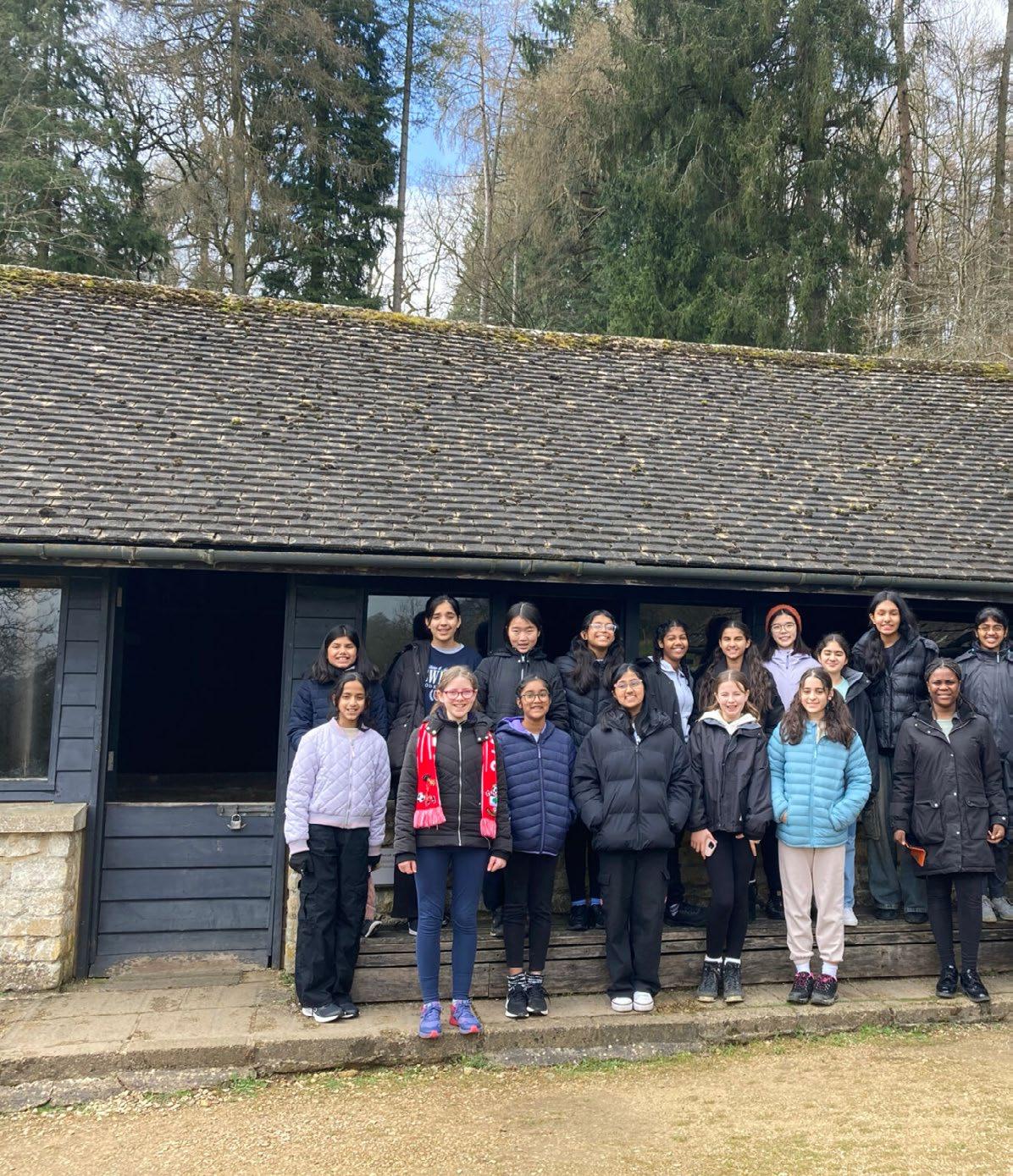
Chedworth Roman Villa
Janani, Upper III
On Wednesday we went to Chedworth Roman Villa to discover some more about the Romans.
We saw a latrina (communal lavatory), a culina (kitchen), a frigidarium, tepidarium and caldarium which made part of the baths complex. On top of all this, we got to make our very own mosaics with colourful and glass tesserae! We all enjoyed making the mosaics because it was a very fun and calming activity
We also saw a triclinium with beautiful and ancient mosaics on the floor. Finally, at the end of our wonderful day at Chedworth Roman Villa, we got to go to the gift shop and explore the wonderful artefacts and architecture of the Roman ruins! In the end, I had a great time and hope to go there again someday!!

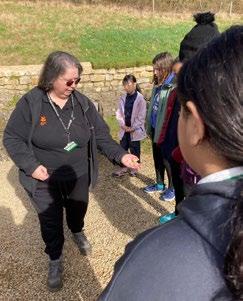
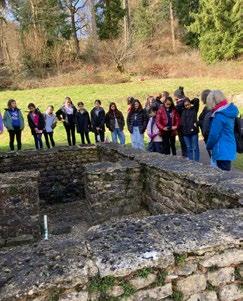
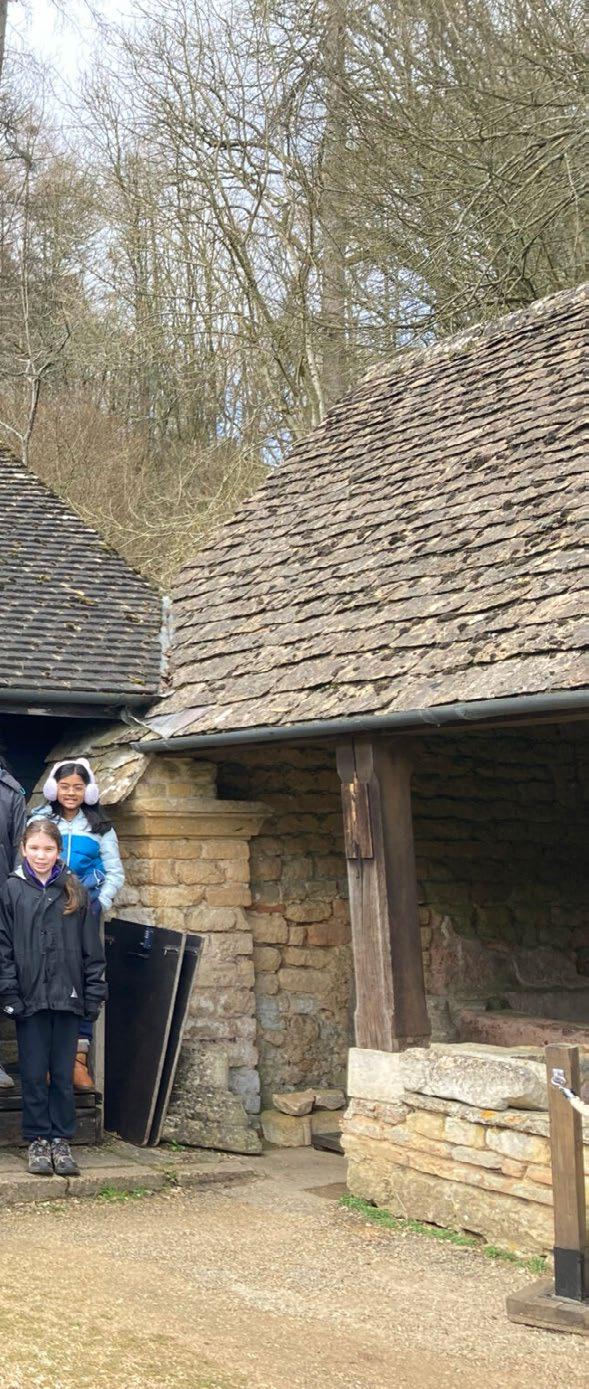
Parents’ Latin Lesson
The Classics department welcomed Lower III and Upper III parents to a beginner’s Latin lesson to experience the joy of learning Latin at The Abbey School.
We delved into Latin sentence structure, nominatives and accusatives, derivations in English from Latin words and even managed to translate the story of Vulcan tricking Mars and Venus. To finish the lesson we considered the values, attitudes and actions of Venus, Mars and Vulcan in the story we had just read.
We concluded with deciding which one we might have worshipped and why, if we had lived in Roman times. Our parent students were excellent and showed a lot of promise!
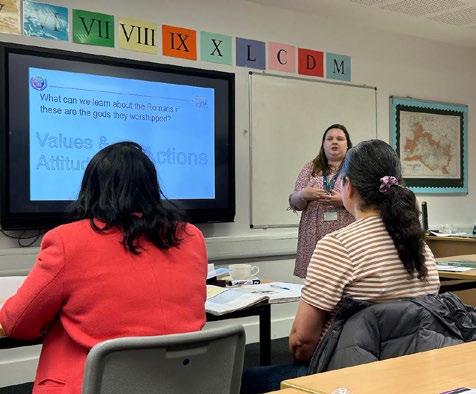
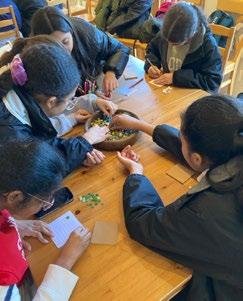
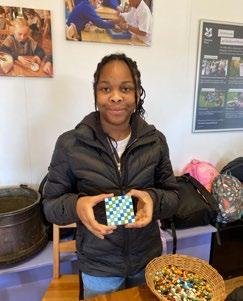
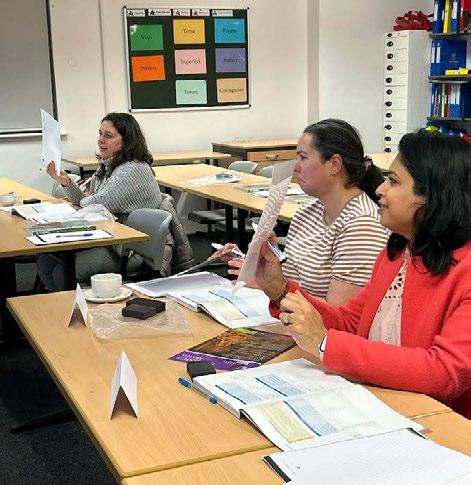


Sixth Form: Warwick Drama Day
The Lower VI Classics students recently had the opportunity to go to Warwick University for the Ancient Drama Day. They started with two short lectures introducing the topic of Greek Theatre and the context of Aeschylus’ Persians, the earliest surviving Greek tragedy.
Then the students attended a seminar led by Dr Xavier Buxton on the subject of ‘fear and femininity’ – two themes prevalent in the play. Also, during the lunch break, they took a look around the impressive Warwick Arts Centre, the Department of Classics and Ancient History, and walked around the Campus.
Then they learned about the performative aspect of the play, and finally they watched the production put on by the Warwick Classics students. Overall the girls really enjoyed it and are looking forward to applying all their new knowledge in their studies!
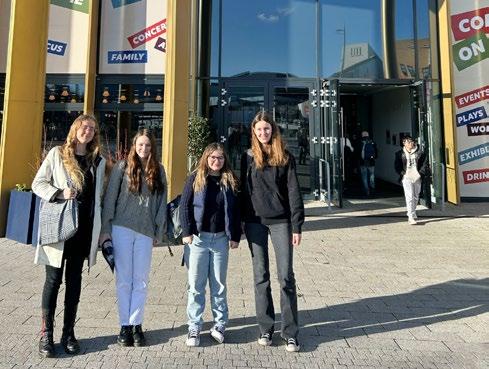
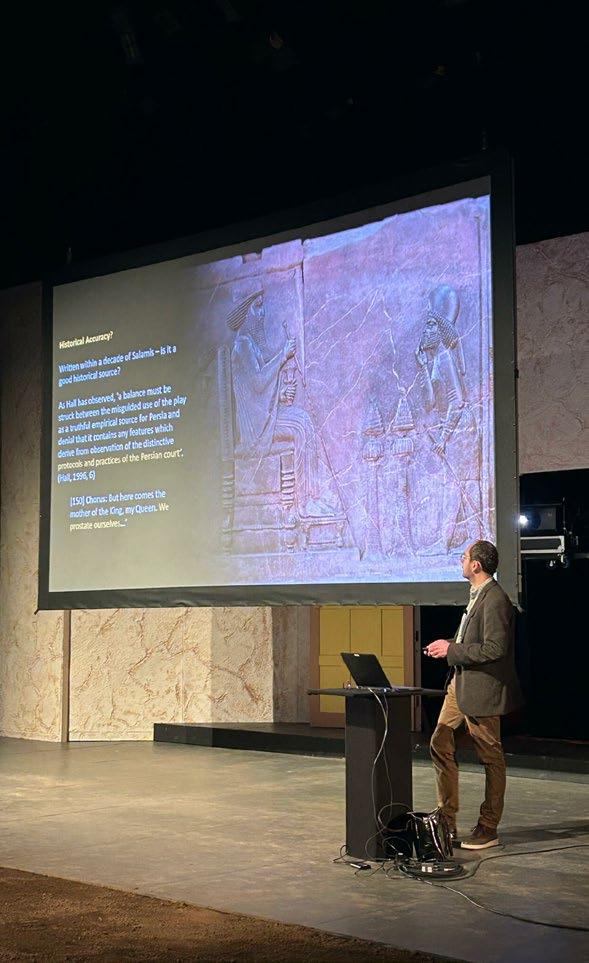
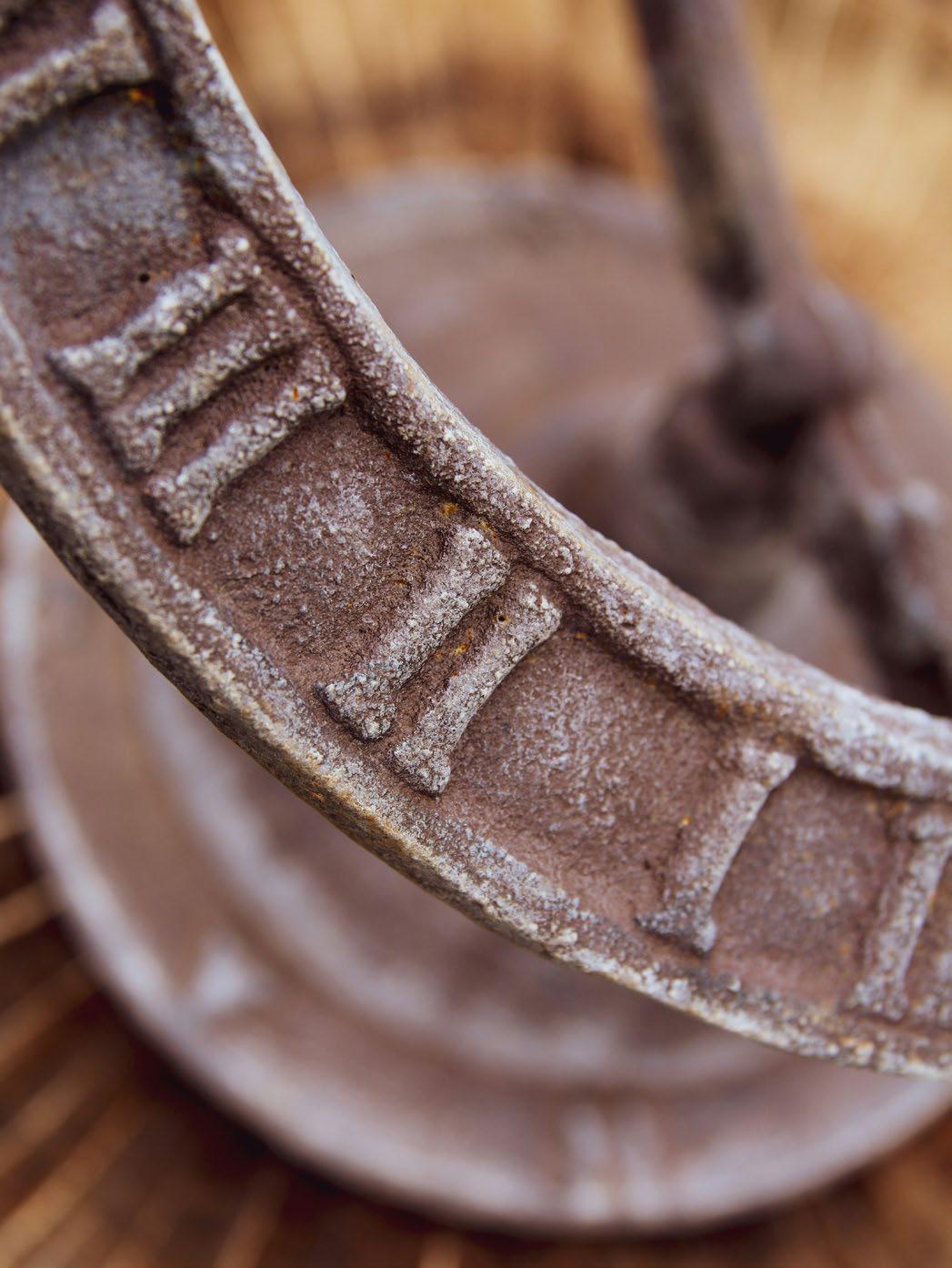
Have you ever wondered why we have a Leap Year?
Julius Caesar undertook a monumental task to reform the chaotic Roman calendar, plagued by inconsistencies and misalignments with the seasons. By adding and removing months and introducing leap years, Caesar aimed to synchronise the calendar with both Earth’s rotation and orbit around the Sun. However, the project faced a setback due to a peculiar counting error in Roman mathematics, leading to the infamous “Year of Confusion” in 46 BC.
The early Roman calendar, based on lunar and agricultural cycles, consisted of 10 months totaling 304 days, with the remaining days of the year left uncounted. King Numa Pompilius attempted to rectify this by adding January and February, extending the calendar to 355 days. Yet, the calendar still fell short of the solar year by about 11 days, resulting in significant discrepancies over time.
Various attempts were made to realign the calendar with the seasons, including the addition of ad-hoc months and adjustments by Roman authorities. However, it was Julius Caesar who, with the guidance of astronomer Sosigenes, made the most radical changes. In 46 BC, two new months were added to synchronise the calendar with the solar year, resulting in a 445-day-long year with 15 months.
Despite Caesar’s efforts, the calendar’s alignment with Earth’s movements remained imperfect due to the fractional difference between the solar year and the calendar year. This discrepancy led to further refinements by subsequent authorities, including Augustus and Pope Gregory. The Gregorian calendar, implemented in 1582, addressed these issues by adjusting leap year rules and skipping certain leap years. This is a summary of the following article, which you can read more in

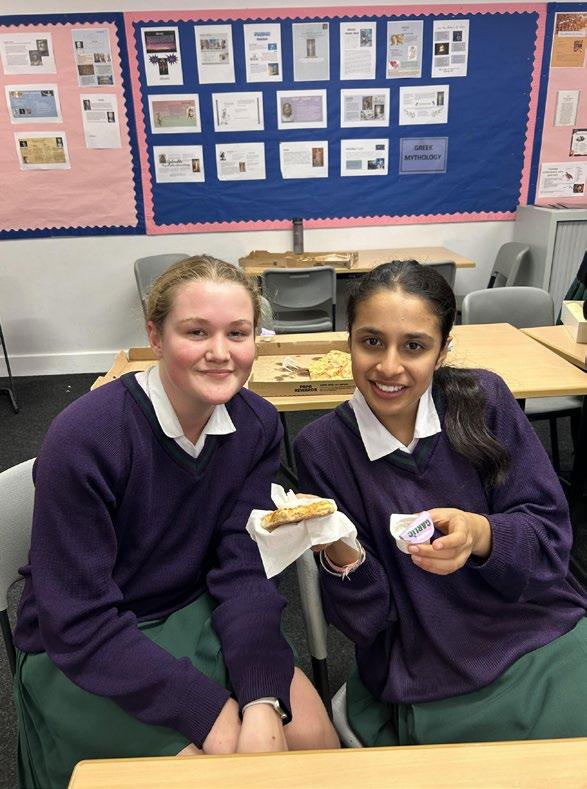
Classics and Careers
What could you do with a Classics Degree?
Short answer: anything
Listen to this series of The Classics Podcast, where you can learn what classicists bring to the workplace (and the world!), the resonance of the #ancientworld, how to forge your own path, and where studying the past can take you
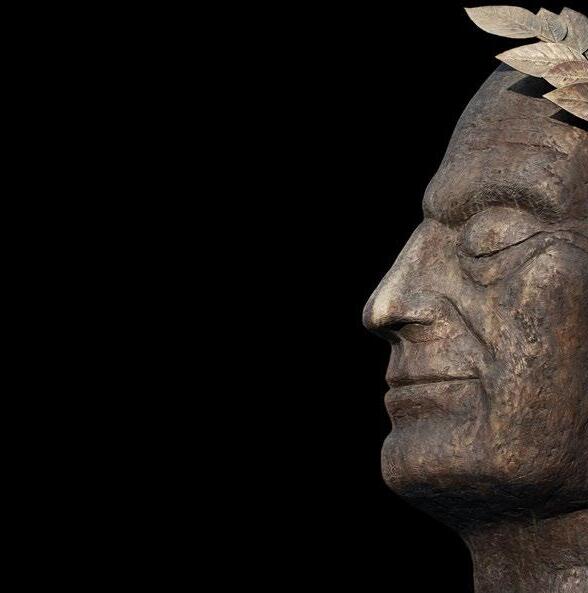
https://classicalassociation.org/classics-and-careers/
Legacy of Greek and Roman ScienceClassics Society event
On Tuesday, Classics Society students eagerly engaged in a livestreamed talk delving into the rich legacy of Greek and Roman medicine and science.
Four esteemed scholars led captivating discussions on various facets, including the intriguing absence of a distinct term for “science” in ancient Greek and Latin lexicons, ethical considerations within ancient medical practices, and the societal status of scientists and physicians. Prior to the lecture, students bonded over slices of pizza and friendly rounds of board games -Classics-themed of course!- fostering a convivial atmosphere.
Ranging from Lower IV to Lower VI, all students had a fantastic time!
Ms Lopresti
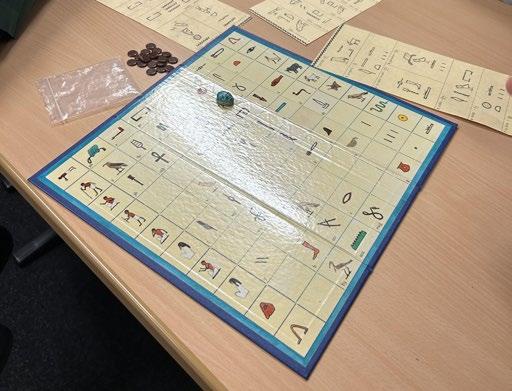
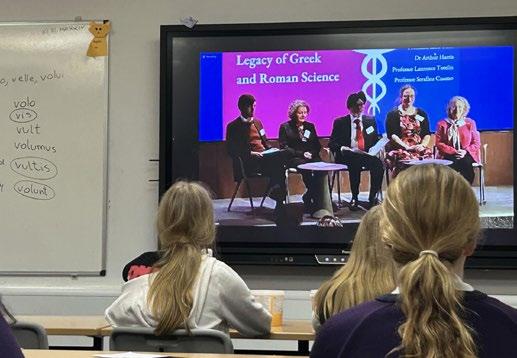
Classics Society: UCL Greek Play – The Bacchae
On the Thursday before half term, some of the students who take various Classical subjects went to watch the Bacchae, which is an ancient Greek tragedy written by Euripides. This play is being studied by the students who take Classical Civilisations for A Level.
We took the train to UCL where the play was being produced, and listened to a short talk about the performance before watching the play. We even got an ice cream during the intermission!
We all really enjoyed the performance and thought it was a fantastic representation of the written play, and the crew and actors involved were very talented. It also enhanced my understanding of ancient Greek drama in performance, and I hope we can see more plays in the future.
Ellie
Latin Reading Competition
This year I decided to enter the Latin Reading competition run by The Association for Latin Teaching. The competition task was to recite a Latin poem - an undertaking more challenging than it may at first appear! When reading Latin poetry, several rules need to be adhered to, such as vowel elision and meter, all while trying to convey the emotion of the poem and maintain an accurate pronunciation. This experience was new and challenging, and although I didn’t win a prize this time, I would strongly encourage others to try this unique competition next year.
Maria, UV
Listen here
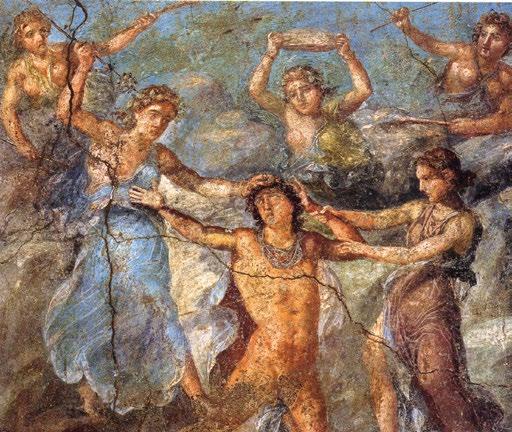
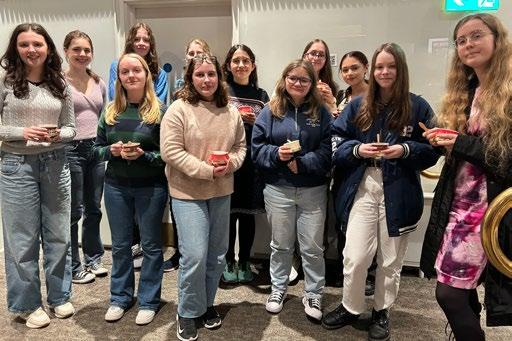
Visit of Abbey alumna, Kate
Kate, who is in her first year at Cambridge University reading Classics, has come to visit the Classics department. She spent time chatting generally to interested sixth formers about her journey to Cambridge and then supported a LV Latin revision lesson. The students were delighted with her explanations and the support she gave to small groups. She then talked in more depth about her experiences of studying Classics at university with the LVI Greek class, sharing her infectious enthusiasm and thoughtfully answering their questions.

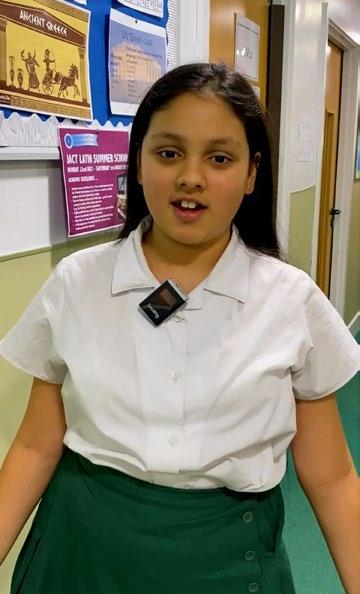
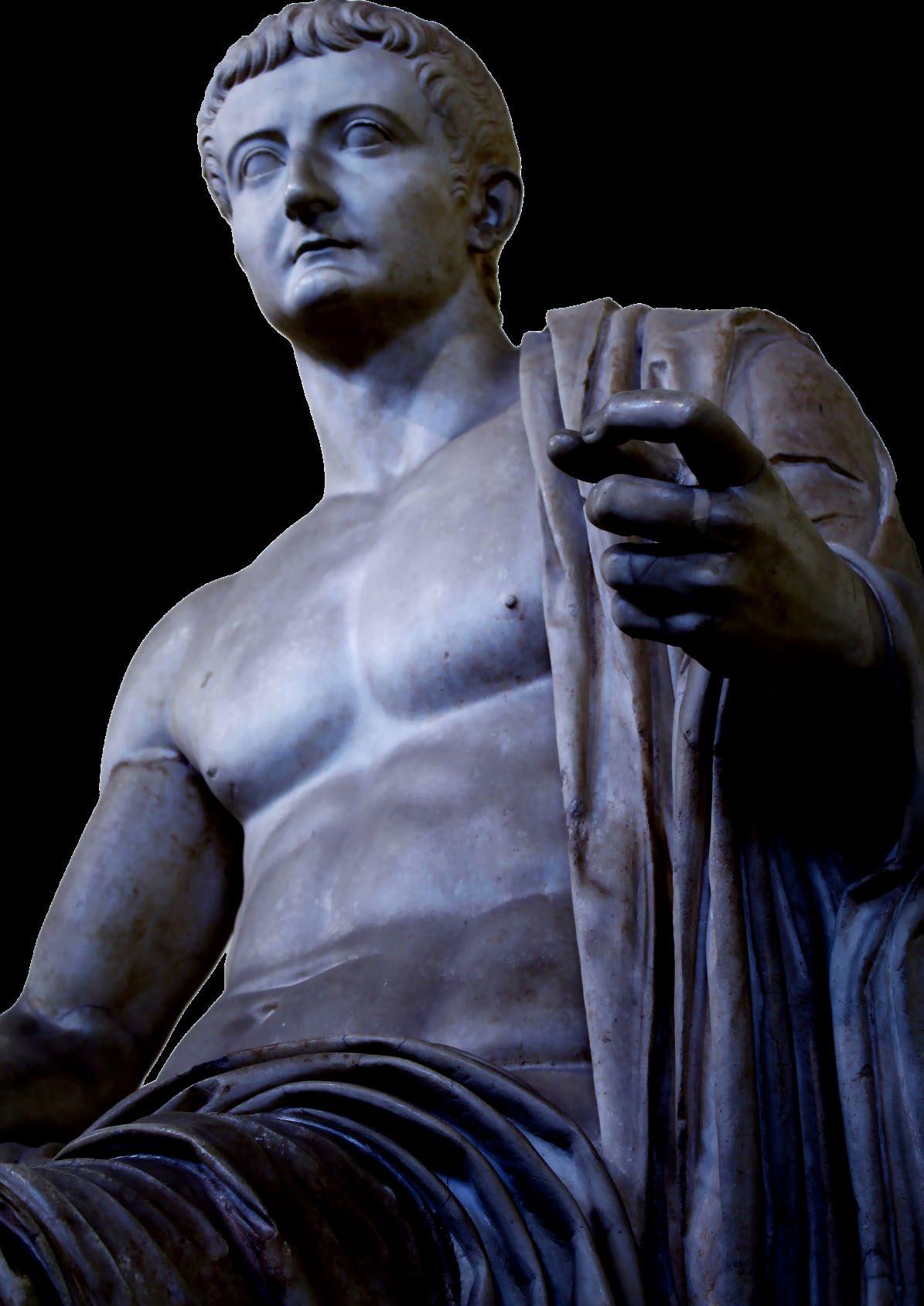
www.theabbey.co.uk
